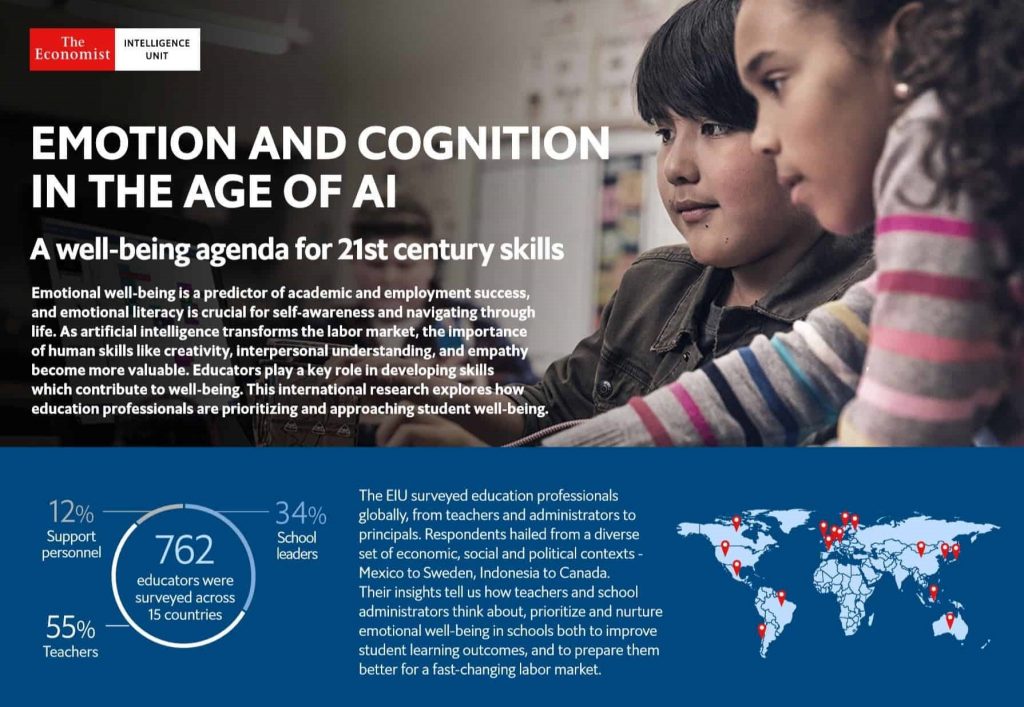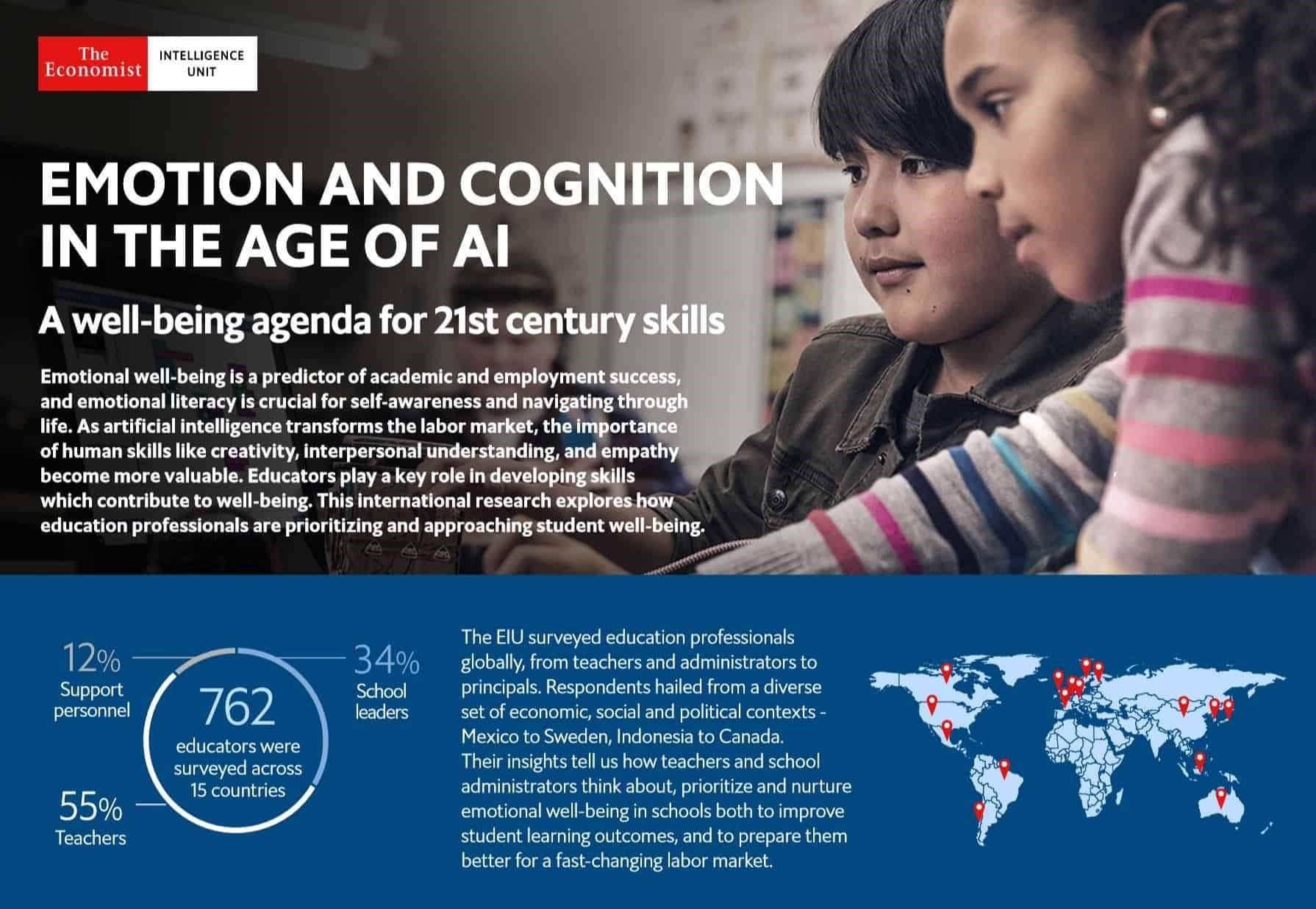
Emotion and Cognition in the Age of AI: New research from Microsoft Education and The Economist Intelligence Unit
Given the accelerating pace of change around the globe, the worlds of school and work are undergoing massive transformations. New technologies such as artificial intelligence are empowering today’s students to address big challenges that motivate them, such as reversing climate change and slowing the spread of disease. At the same time, collaboration tools, mixed reality and social media are bringing them closer to one another than ever before.
To successfully navigate these changes and to leverage the opportunities ahead of them, we need to prepare students with the diverse skills they will need in the future.
To better understand how to prepare today’s kindergartners to thrive in work and life, last year we released research about the Class of 2030.
Our findings highlighted two core themes: Student-centric approaches such as personalized learning and the growing importance of social-emotional skills.
Social-emotional skills such as collaboration, empathy and creativity have long been essential, but our research revealed they have become newly important to employers and educators alike. Social-emotional skills are also necessary for well-being, which is a key predictor of academic and employment success.
So this year we decided to dig deeper, to better understand what educators and schools worldwide are doing to enhance students’ skills and well-being and to understand how technology can help. We worked with the Economist Intelligence Unit (EIU) to survey more than 760 educators in 15 countries. From Mexico to Sweden and from Indonesia to Canada, we listened to the voices of educators. We also interviewed leading experts on and reviewed 90 pieces of research.
 Click the excerpt above to view the full infographic.
Click the excerpt above to view the full infographic.
What we learned is that educators around the globe are placing a high priority on student well-being and they are actively seeking ways to nurture it in their classrooms, across the school environment, and in their communities.
According to the survey, 80 percent of educators believe that well-being is critical for academic success, for developing foundational literacies and for cultivating strong communication skills, and 70 percent of educators say well-being has grown in importance for K-12 students during their careers.
At the same time, school systems have not moved as quickly as educators to prioritize well-being. Only 53 percent of educators said their schools have a formal policy in place to support students’ well-being. Individual educators can do great things in their own classrooms. But to impact well-being at scale, systemic approaches are needed.
We identified some common barriers that educators encounter in trying to help improve their students’ well-being:
- 64 percent of educators said they lack the resources or time to support students’ well-being
- 71 percent of respondents said changes to enhance student well-being need to be driven by school leaders
And, we asked educators what technologies they find most beneficial in overcoming these barriers. Three areas stood out:
- 58 percent mentioned immersive experiences that allow students to explore scenarios from the perspective of others, which show strong promise for promoting social-emotional skills, particularly empathy
- 49 percent cited tools that foster collaboration among students
- 46 percent of educators favor tools that help collect and analyze data about students’ emotional states
In addition, technology provides the critical scale to take any of these approaches beyond a single classroom.
To help identify best practices, we took a close look at schools where teachers report their students enjoy higher-than-average well-being. We found several common threads. These leader schools are more likely to:
- Have a formal plan to promote well-being
- Measure and monitor well-being as well as academic achievement
- Support inclusive classroom practices that amplify student voice
- Engage purposefully with the community
- Take a whole-school approach to professional learning
A complete summary of our research results will be released in March. In the meantime, we invite you to join our free webinar series on Teaching Happiness, starting February 25, 2019, for a broader exploration of the skills that empower students to lead happy and fulfilling lives.
We are excited to be on this journey together with all of you, to learn from you, and to contribute our insights and our technologies to help every student on the planet achieve more.
0 Comments on "Emotion and Cognition in the Age of AI: New research from Microsoft Education and The Economist Intelligence Unit"